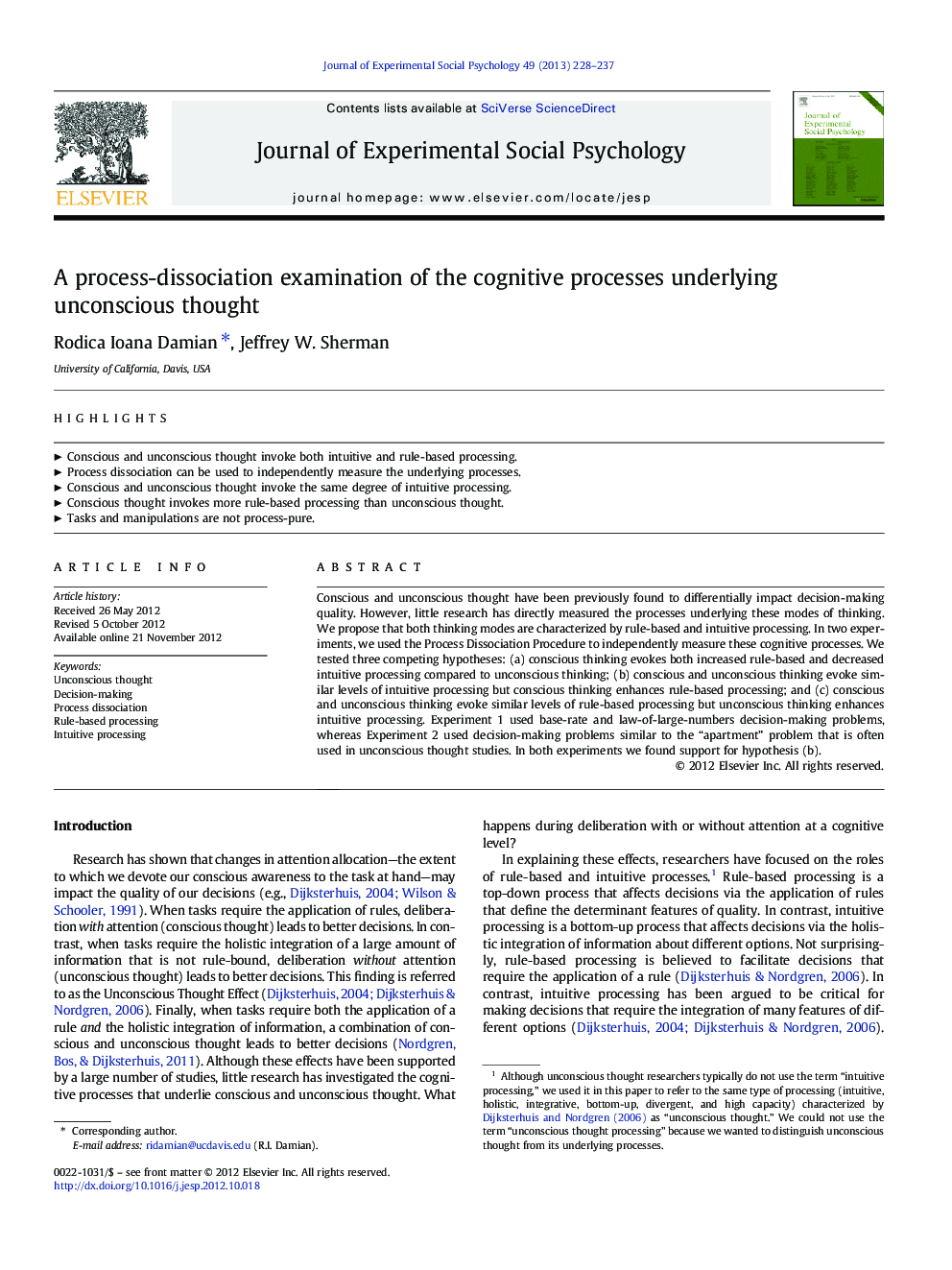| Article ID | Journal | Published Year | Pages | File Type |
|---|---|---|---|---|
| 947847 | Journal of Experimental Social Psychology | 2013 | 10 Pages |
Conscious and unconscious thought have been previously found to differentially impact decision-making quality. However, little research has directly measured the processes underlying these modes of thinking. We propose that both thinking modes are characterized by rule-based and intuitive processing. In two experiments, we used the Process Dissociation Procedure to independently measure these cognitive processes. We tested three competing hypotheses: (a) conscious thinking evokes both increased rule-based and decreased intuitive processing compared to unconscious thinking; (b) conscious and unconscious thinking evoke similar levels of intuitive processing but conscious thinking enhances rule-based processing; and (c) conscious and unconscious thinking evoke similar levels of rule-based processing but unconscious thinking enhances intuitive processing. Experiment 1 used base-rate and law-of-large-numbers decision-making problems, whereas Experiment 2 used decision-making problems similar to the “apartment” problem that is often used in unconscious thought studies. In both experiments we found support for hypothesis (b).
► Conscious and unconscious thought invoke both intuitive and rule-based processing. ► Process dissociation can be used to independently measure the underlying processes. ► Conscious and unconscious thought invoke the same degree of intuitive processing. ► Conscious thought invokes more rule-based processing than unconscious thought. ► Tasks and manipulations are not process-pure.
